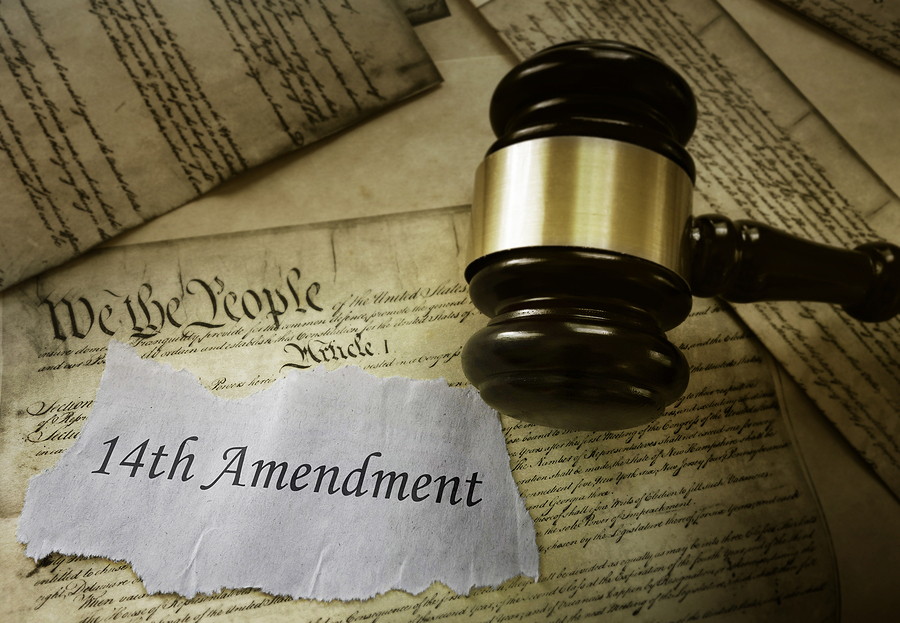The principle of due process lies at the heart of the American legal system, ensuring that every individual under the law is treated fairly and justly. Most people have heard the term “due process,” but what does it really encompass? With a particular focus on the Fourteenth Amendment, this post delves into the critical role of due process in shaping law and providing essential protections for those involved in the criminal justice system.

History of the 14th Amendment
To grasp the full significance of due process, it’s essential to understand its history and how it functions within the context of the Fourteenth Amendment. The 14th Amendment, ratified in 1868 during the Reconstruction era, has been pivotal in expanding civil rights and ensuring equal protection under the law. However, within its text resides a clause that is equally profound: the guarantee of due process.
The Law of Due Process
Due process epitomizes the canon of fairness in legal proceedings. It ensures that individuals are given notice and an opportunity to be heard before the government takes away their life, liberty, or property. The concept of due process has roots that stretch back to English common law where it was enshrined in the Magna Carta.
In the United States, it found its modern form in the 14th Amendment, which states that no state shall “deprive any person of life, liberty, or property, without due process of law.” In simpler terms, the government cannot simply imprison you, take your belongings, or end your life without a proper legal procedure. Due process is essential to the concept of the rule of law.
Procedural Due Process
Procedural due process is more than just a notice or an opportunity to be heard; it dictates the precise procedures that the government must follow before it can take adverse action against an individual. It demands that laws not be arbitrary, that there is fairness in administration, and that there must be a right to appeal. This right protects us from the arbitrariness of government action and ensures that the legal system is transparent and fair. When these procedural rights are violated, the consequences can be severe. In some cases, a person may be wrongfully convicted due to a lack of fair procedures, such as the right to a speedy trial or the right to confront witnesses.
Substantive Due Process
The concept of substantive due process is complex and has been the subject of significant legal debate. It generally refers to the idea that certain rights are so fundamental that the government cannot infringe upon them, no matter how fair the procedure. The application of substantive due process has led to the recognition of a wide array of fundamental rights, including the right to privacy, the right to marry, and the right to freedom of contract. The Supreme Court uses this concept to protect individual rights from government intrusion, particularly those not explicitly outlined in the Constitution.
Due Process in Criminal Justice
One of the most critical areas where due process comes into play is in criminal law. The Fourteenth Amendment requires that all criminal proceedings uphold the principles of due process. This includes enforcing the right to a fair trial, the presumption of innocence, and the right to counsel. Unfortunately, not all individuals are treated with the fairness that due process mandates. Many encounter issues such as racial profiling, excessive bail, the overbearing power of the state, and wrongful convictions, all of which are in direct conflict with the 14th Amendment’s due process clause.
Impacts of the Fourteenth Amendment
The 14th Amendment, and by extension due process, has had resounding impacts on shaping law and the protection of individuals’ rights in America. Landmark cases such as Brown v. Board of Education, Roe v. Wade, and Miranda v. Arizona are emblematic of the Amendment’s reach and influence. These cases, and many others, have established precedents that have expanded the scope of due process and advanced the cause of civil liberties. They remain a testament to the continued struggle for a more just and equitable society, where the law is a shield, not a sword.
Conclusion
The Fourteenth Amendment remains an enduring testament to the principles of American democracy that recognizes the equal worth of every individual and the duty of the state to ensure due process. As we reflect on the critical role of due process in shaping law, it is incumbent on us to advocate for its unyielding application to protect the rights of all who come under its purview.
Understanding our rights under the 14th Amendment is not just a matter of legality; it is a cornerstone of our shared values as a society. By comprehending the essence of due process, we take another step towards creating a more just, fair, and equitable legal system for all Americans.
If you or your loved one has been charged with this crime or any other, get in touch with us immediately. Contact Attorney David E. Lewis at 317-636-7514 to speak with a seasoned criminal defense lawyer in Indianapolis, Indiana. Our law firm will get you the best possible outcome to your criminal case!
Related Posts:
Facts About Your Sixth Amendment Right to Counsel
What are My Constitutional Rights After Being Arrested?
Should I Waive My Right to a Lawyer if I Know I’ll Be Found Guilty?
